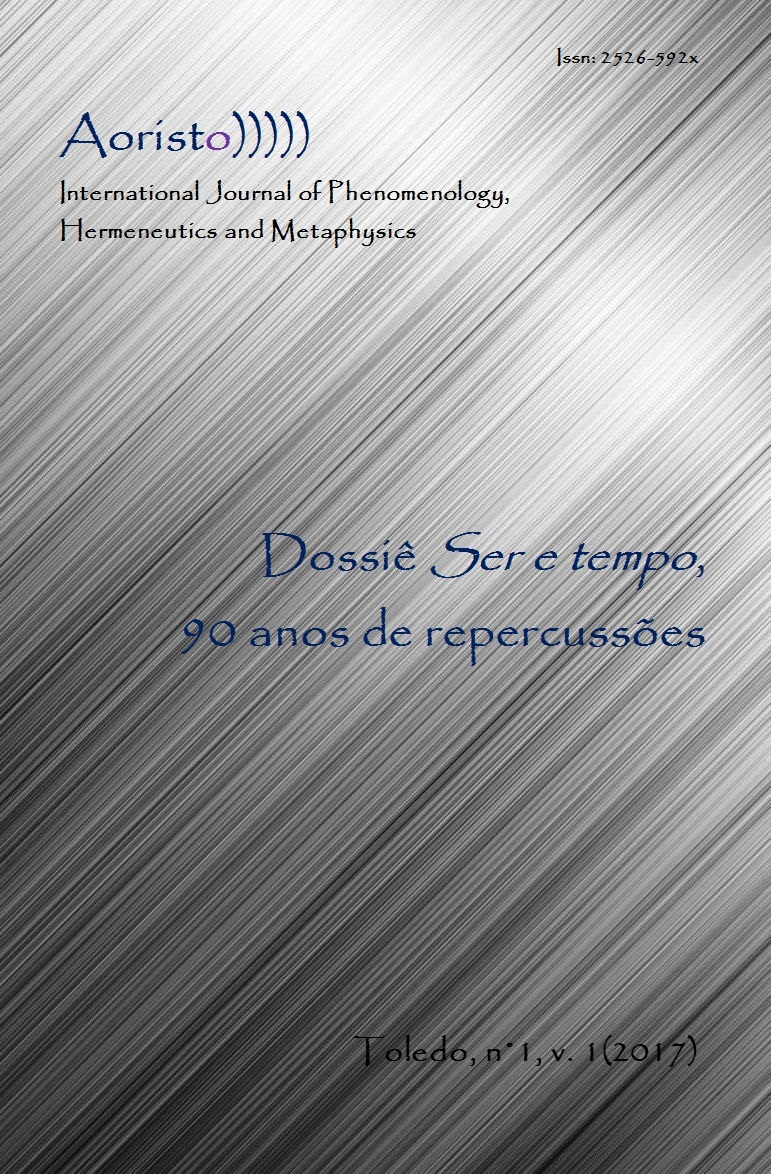Beyond Liberalism: Martin Heidegger’s Political Thought
o pensamento político de Martin Heidegger
DOI:
https://doi.org/10.48075/aoristo.v1i1.16519Keywords:
Heidegger , Metafísica da Subjectividade, Jünger, PolíticaAbstract
The purpose of this paper is to approach the relationship between Heidegger’s thought and politics. In the context of Nazism’s arrival to power in Germany, Heidegger refuses to take the people as ‘race’ and ‘supreme value’. In line with this, and taking Ernst Jünger’s concept of ‘the worker’, he tries to think the relationship the worker and the world, i.e. the ‘total mobilization’ of the world by the ‘will to power’, beyond what he calls the ‘metaphysics of subjectivity’, to which Jünger himself remains attached. On the other side, in face of Carl Schmitt’s concept of the political, Heidegger accepts the challenge of thinking the political itself as something irreducible to the state. However, if thinking the political as something prior to the state takes Schmitt to think it at the basis of the differentiation between friend and enemy, and to support this differentiation’s monopolization by the state, Heidegger tries to think the political outside the relationship between friend and enemy and, accordingly, as something that would destroy the state’s status as “supreme value”.
Downloads
Published
How to Cite
Issue
Section
License

This work is licensed under a Creative Commons Attribution-NonCommercial-NoDerivatives 4.0 International License.
Copyright Notice
1. I grant the AORISTO – International Journal of Phenomenology, Hermeneutics and Metaphysics the first publication of my article, licensed under Creative Commons Attribution (which allows sharing of work, recognition of authorship and initial publication in this journal).
2. I confirm that my article is not being submitted to another publication and has not been published in its entirely on another journal. I take full responsibility for its originality and I will also claim responsibility for charges from claims by third parties concerning the authorship of the article.
3. I also agree that the manuscript will be submitted according to the Aoristo’s publication rules described above.
License Creative Commons
This work is licensed under a Creative Commons Atribuição-NãoComercial-CompartilhaIgual 4.0 Internacional, which allows you to share, copy, distribute, display, reproduce, in whole or in part, for as long as there is no commercial purpose, and authors and source are cited.


